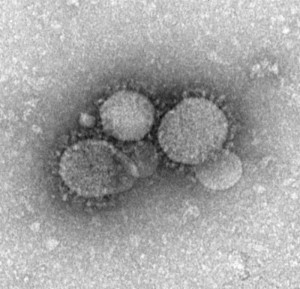In the United Arab Emirates (UAE), a 29 year old male truck driver has tested positive for Middle East respiratory syndrome coronavirus ( MERS-CoV), following the detection of the virus from the camels he transported to Abu Dhabi on 10 May.

According to the national surveillance policy, imported camels require testing for MERS at border control. The patient who is currently hospitalised in a negative pressure room, had no visible respiratory illness or any close contact with any confirmed cases at the time of the testing. Contact tracing of the patient’s relatives and known affiliates is underway and there are currently no trade or travel restrictions in place at the entry points of the member states.
To date the World Health Organisation (WHO) have been notified of 1118 confirmed cases and 423 deaths around the Arabian peninsula. Countries of the peninsula include: Bahrain, Iraq, Kuwait, Saudi Arabia and the UAE.
Transmission of the disease may occur following close contact with an infected person or recent traveler from these regions. Those at increased risk on contracting MERS-CoV infection include health care workers treating confirmed cases, diabetics and the immunocompromised. High risk individuals are advised to avoid contact with camels, in particular raw camel milk, urine and undercooked meat. Good food hygiene practices are also recommended.
Lavinia Rodney is a qualified microbiologist working in the diagnostics department of a busy UK hospital, alongside studying for the final year of her Masters Degree in Medical Microbiology

